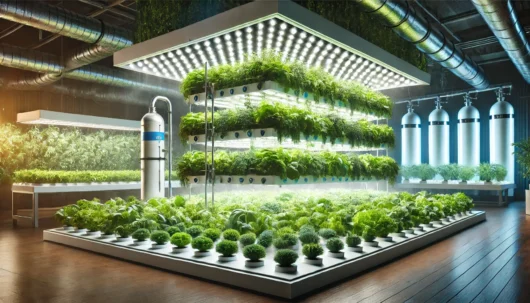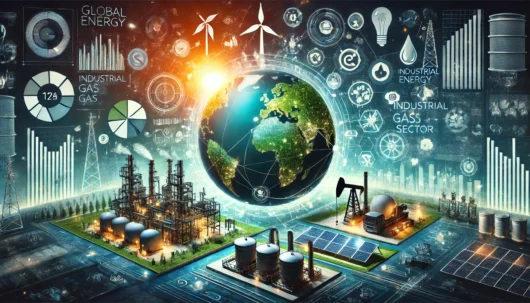Industrial gas supplier plays a crucial role across various sectors, providing the essential elements for different industrial processes. Whether you’re involved in manufacturing, healthcare, food processing, or technology development, there is a high probability you’ll require industrial gases such as oxygen, nitrogen, or argon at some point. Suppliers of these gases have evolved, offering more than mere products; they now provide comprehensive services, including the supply of equipment, technical support, and tailored gas mixtures to meet specific industry standards.
Selecting the right industrial gas supplier is a decision that requires careful consideration. Beyond the purity and quality of the gases, supply reliability, safety practices, and cost-effectiveness play pivotal roles in maintaining efficient operations. Additionally, with growing attention to sustainability, suppliers who innovate in eco-friendly practices are becoming preferred partners in the industry. By choosing a supplier that fits your specific needs, you position your operations for success, ensuring that you have the necessary gas-related support to meet the demands of your market.
Key Takeaways
- Industrial gases are integral to various industries, necessitating a reliable supply.
- The choice of gas supplier impacts safety, cost, and operational efficiency.
- Sustainability and innovation are critical considerations in selecting a gas supplier.
Industrial Gas Products and Services
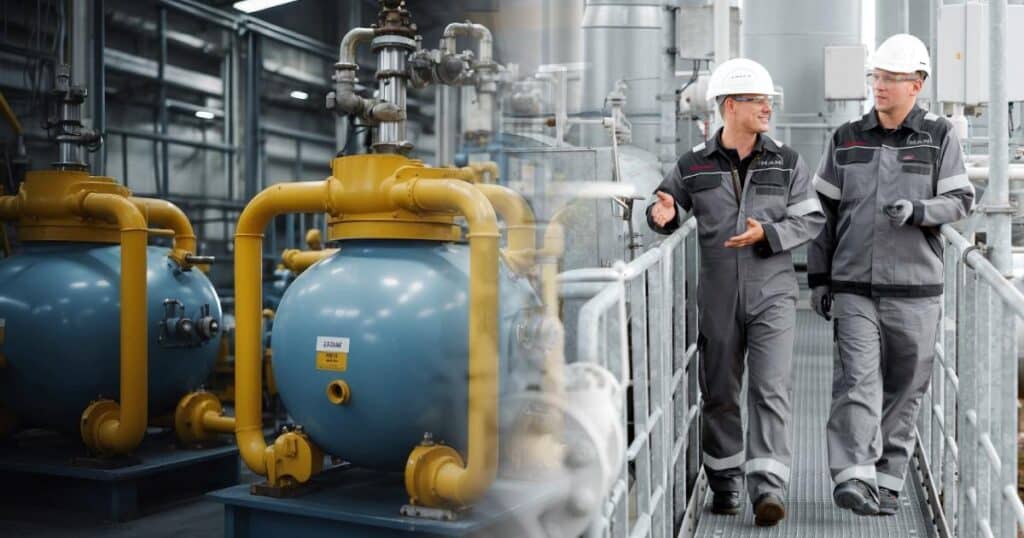
In industrial gas supply, you’ll encounter a diverse array of gases tailored for various industrial applications, along with a suite of services designed to ensure the safe and efficient delivery and handling of these gases.
Types of Industrial Gases
Industrial gases are essential in numerous fields, ranging from healthcare to manufacturing. The mainstay products include:
- Nitrogen: Often used in food preservation and as a blanketing gas in the chemical industry.
- Oxygen: Vital for medical use, steelmaking, and water treatment processes.
- Argon: Commonly employed for its inert properties in welding and metal fabrication.
- Hydrogen: Used as a fuel source in refining processes and the production of fertilisers.
- Carbon Dioxide: Utilized in refrigeration, as well as in the beverage industry for carbonation.
- Helium: Required for its low boiling point in cryogenics and as a lifting gas in balloons.
- Propane and Acetylene are fuels for heating, cutting, and welding due to their high energy content.
Delivery and Storage Solutions
Your choice of gas delivery and storage infrastructure is critical to maintaining a safe and uninterrupted supply:
- Cylinders: Convenient for portable use, cylinders are available for gases like acetylene and propane.
- High-Pressure Cylinders: These are robust containers for gases such as oxygen and nitrogen stored under high pressure.
- Microbulk Systems: A cost-effective solution for users requiring a bridge between cylinder and bulk delivery.
- Bulk Supplies: For large-volume users, bulk deliveries provide a consistent and large-scale gas supply, helping to minimise handling and changeovers.
Specialty Gases and Equipment
For applications demanding a high degree of purity or a specific mixture of gases, speciality gases and equipment are tailored to your exact requirements:
- Specialty Gases include but are not limited to ultra-high purity gases, calibration gases, and gas mixtures for specific industrial applications.
- Equipment: On top of gases, you’ll need reliable equipment – regulators, flowmeters, and purging systems are all crucial for managing and utilising your gas supply effectively.
Applications and Markets
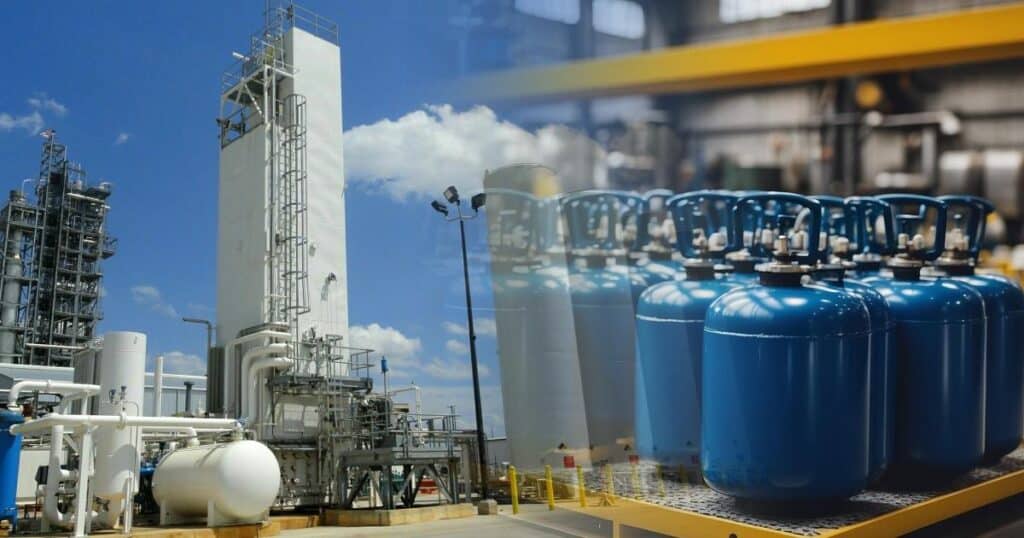
In the diverse landscape of industrial applications, your operations depend on the reliability and efficiency of gases to enhance productivity and ensure quality. Here are the key sectors where industrial gases play a vital role:
Healthcare and Life Sciences
Industrial gases are crucial in healthcare, where oxygen is used for respiratory care, and nitrogen preserves biological samples. Your facility might rely on these gases for patient care, pharmaceutical manufacturing, or laboratory research to maintain the highest safety and quality standards.
Manufacturing and Construction
Welding and cutting processes in manufacturing and construction extensively utilise industrial gases like argon and helium for precision work. Your operations can achieve enhanced productivity with the proper gas mixture, leading to stronger welds and more efficient construction.
- Welding: Using industrial gases in welding can significantly improve the strength and quality of the welds.
- Construction: Gases like carbon dioxide are used in construction to cure concrete and enhance the durability of your building projects.
Food and Beverage Industry
Maintain the freshness of your food products with gases like carbon dioxide and nitrogen, essential for packaging and preserving the quality of food and beverages. In your industry, people widely use beer gas, a blend of carbon dioxide and nitrogen, to carbonate and dispense beer, ensuring they achieve a perfect pour every time.
- Packaging: Industrial gases are used to create modified atmospheres that extend the shelf life of your products.
- Beverage Dispensing: A consistent quality of carbonation in beverages is achieved with precision-controlled gas blends.
Sustainability and Innovation
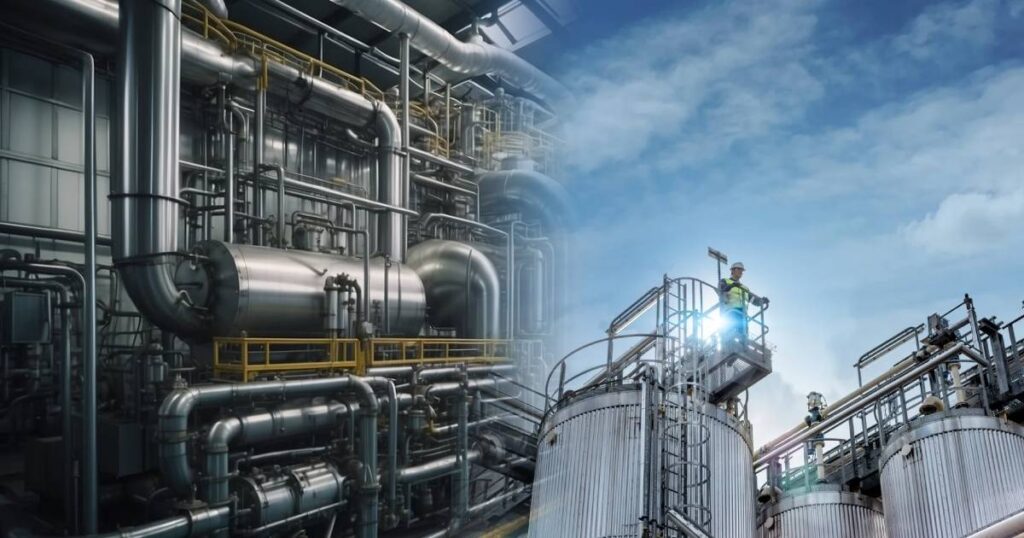
In the industrial gas sector, sustainability and innovation are not just buzzwords but integral to meeting today’s environmental challenges. Understanding these concepts is crucial, especially as companies like Linde pave the way with initiatives like the Linde Green option, targeting zero-carbon energy production.
Decarbonisation Efforts
The push to decarbonise the industry is reshaping the production and use of industrial gases. Significant efforts include reducing carbon footprints across supply chains and leveraging expertise in technologies that support sustainable practice changes. For example, Linde’s Green portfolio provides lower-carbon alternatives in various applications, aligning with global decarbonisation goals.
Advancements in Gas Technology
Your understanding of the expertise required in gas technology developments is vital to appreciating the strides in this sector. The advancements in gas technologies are multifaceted, ranging from improved efficiency in gas production to innovative applications of gases that support clean energy transitions. An example of such innovation is Linde’s continuous development of processes that enhance its products and services’ environmental performance, allowing you to choose more sustainable solutions and potentially reduce your enterprise’s environmental impact.
Choosing a Gas Supplier
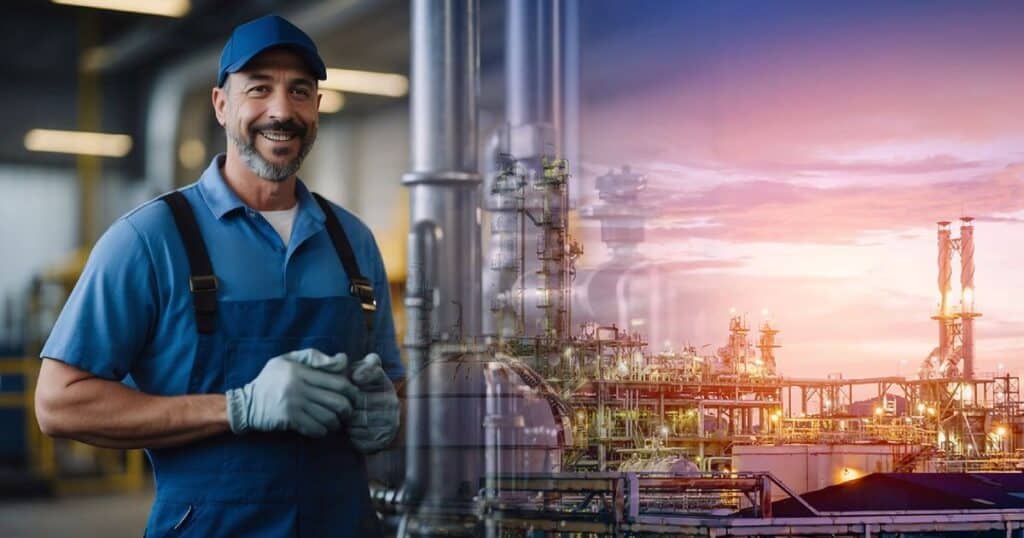
When you’re in the market for an industrial gas supplier, two crucial aspects to consider are the dependability of their supply chain and the quality of customer service and support they offer. These elements are pivotal to maintaining your operations without interruption and getting help when issues arise.
Supply Reliability
Your supplier should guarantee consistent and timely delivery of gases to prevent operational downtime. Partners like Linde, known for a robust infrastructure, ensure a stable supply, so investigate their distribution network. Ascertain if the supplier can provide a variety of gases—such as speciality gases—and if they have provisions for emergency deliveries. Examine the supplier’s scale; larger suppliers often have a more reliable supply due to extensive resources and wholesale agreements.
Customer Service and Support
A reliable industrial gas supplier should offer excellent customer service. This involves clear communication channels, from EDI (Electronic Data Interchange) systems for order processing to 24/7 customer support for emergencies. Determine whether they have a dedicated safety program and if they provide guidance on handling gases properly to mitigate risks. Inquire about cost considerations and if they offer flexible pricing plans that can scale with your business needs.
When selecting a distributor, consider how their services align with your company’s requirements to form a beneficial partnership in the industrial gas business.
Frequently Asked Questions
In this section, you’ll find targeted information addressing common inquiries about industrial gas suppliers, from the types of gases offered to the safety protocols crucial for handling these substances.
What types of gases do industrial gas suppliers typically offer?
Industrial gas suppliers usually provide a variety of gases, including nitrogen, oxygen, and carbon dioxide, which serve a wide range of applications across multiple industries. They may also offer speciality gases such as acetylene, argon, and helium.
How are industrial gases supplied and stored?
These gases are typically supplied in compressed gas cylinders, liquid containers, or through bulk delivery. For bulk supplies, atmospheric and process gases are stored in tanks and delivered via tanker trucks.
What are the primary uses of industrial gases in manufacturing processes?
Industrial gases play critical roles in various manufacturing processes. Steel production requires oxygen. Welding employs nitrogen because of its inert properties, and fire suppression and beverage carbonation utilise carbon dioxide.
Which factors determine the choice of an industrial gas supplier for a business?
Businesses often base their choice of an industrial gas supplier on reliability, cost-effectiveness, gas quality, supply options, and customer service offerings. Industry leadership and support services are also significant factors.
What safety measures are essential when handling industrial gases?
Strict safety measures must be adhered to when handling industrial gases. This includes proper storage, transportation, personal protective equipment, and adherence to managing procedures to mitigate risks like asphyxiation, fire, or explosions.
How do mergers and acquisitions impact the industrial gas market?
Mergers and acquisitions can alter the landscape of the industrial gas market by affecting competition, potentially leading to improved efficiencies, broader product offerings, and changes in pricing. They may also influence supply trends for various gases.
